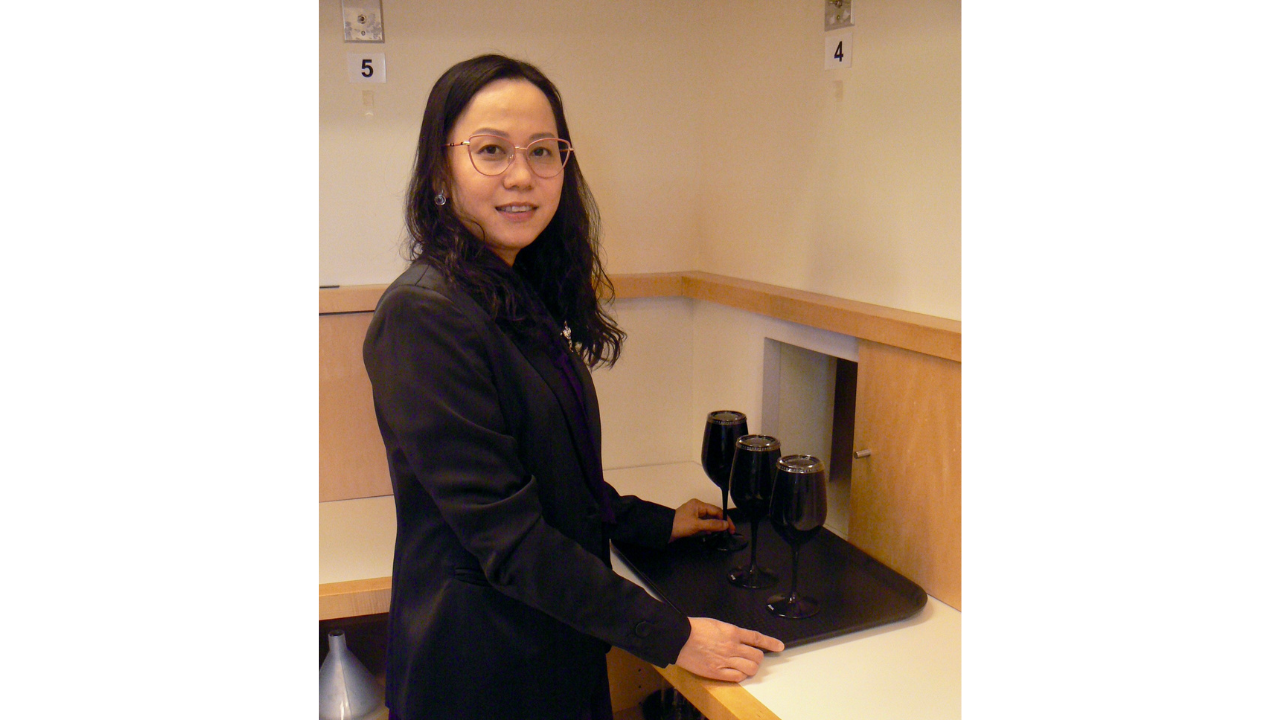
Ha Nguyen is a newly appointed Assistant Professor and Sensory Scientist in the UC Davis Department of Viticulture and Enology (V&E). Her research integrates classic and advanced psychophysical, sensory, and consumer research methods with cutting-edge genetic, molecular biology, and physicochemical techniques to advance sensory knowledge and methodologies, providing a more comprehensive understanding of the factors influencing wine sensory characteristics and consumer perception. She aims to apply these insights to improve human health and address global challenges in food and nutrition security—both broadly and within the context of viticulture and enology, such as sustainability practices, climate change, smoke taint, and the development of no- or low-alcohol wines.
Dr. Nguyen has an extensive background in both basic and applied sensory science research, with experience in academic and industrial settings. Her work with the commercial food and beverage sectors involved sensory and consumer research for quality control and product innovation. Prior to joining UC Davis, she was a postdoctoral research fellow in human sensory psychophysics and genetics at Monell Chemical Senses Center in Philadelphia, PA—the world’s only independent, non-profit scientific institute for interdisciplinary basic research on the senses of taste and smell. At Monell, she worked in the lab of Dr. Danielle Reed, focusing on the connection between genetic ancestry and bitter perception, the efficacy of bitter blockers, and the heritability of food preference and consumption behavior.
At UC Davis, Dr. Nguyen’s research program aims to get into the heart of sensory science: to understand the mechanisms of sensory perception and uncover the mysteries behind person-to-person differences in sensory responses, thereby improving sensory methodologies. Her recent work has demonstrated that genetics contributes to individual differences in bitter taste perception, the bitter-reducing efficacy of bitter blockers and sweeteners, the pleasantness of odors, and the liking and intake of alcoholic beverages—highlighting the importance of genetic variation in shaping sensory and consumer responses. Moving forward, she intends to apply sensory and genetic methods to explore how genetic, ancestral, regional, dietary, and sociocultural differences influence sensory perception, preference, and consumption of wine. A key component of this effort is building a genetics database and global map for wine sensory perception. By understanding chemosensory and hedonic biomarkers alongside sociocultural factors, her work will help develop formulations tailored to individuals or specific populations—or optimize products for those with the most challenging palates.
Part of Dr. Nguyen’s research focuses on uncovering mechanisms of taste, smell, and related senses (e.g., chemesthesis and mouthfeel) in wine perception, while applying sensory analysis and consumer studies to discover novel ingredients and develop healthier formulations. She plans to use a gustometer and an olfactometer (devices that deliver a predetermined volume and concentration of a taste/smell stimulus to the tongue/nose over a specified time period) in these sensory psychophysics studies, in collaboration with scientists across diverse fields to integrate sensory and consumer science with genetics, neuroscience, molecular biology, and physicochemical science. Additionally, she is keen to apply advanced data science techniques to analyze qualitative sensory and consumer data, providing deeper insights into consumer perceptions and preferences, and bridging the gap between consumer and expert perceptions and languages to develop a comprehensive lexicon for wine sensory evaluation. Ultimately, her vision is to make discoveries in wine sensory that support viticulture and enology while addressing stakeholder concerns related to sustainability and healthy eating.
